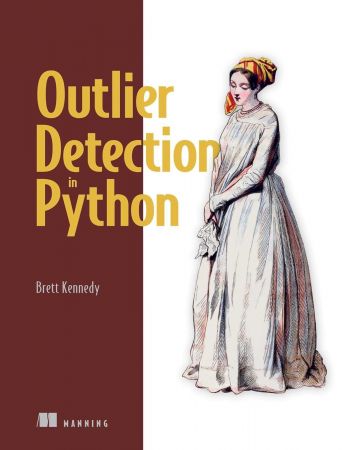English | 2024 | ISBN: 1633436470 | 562 pages | True PDF | 74.94 MB
Learn how to identify the unusual, interesting, extreme, or inaccurate parts of your data.
Data scientists have two main tasks: finding patterns in data and finding the exceptions. These outliers are often the most informative parts of data, revealing hidden insights, novel patterns, and potential problems. Outlier Detection in Python is a practical guide to spotting the parts of a dataset that deviate from the norm, even when they’re hidden or intertwined among the expected data points.
In Outlier Detection in Python you’ll learn how to
• Use standard Python libraries to identify outliers
• Select the most appropriate detection methods
• Combine multiple outlier detection methods for improved results
• Interpret your results effectively
• Work with numeric, categorical, time series, and text data
Outlier detection is a vital tool for modern business, whether it’s discovering new products, expanding markets, or flagging fraud and other suspicious activities. This guide presents the core tools for outlier detection, as well as techniques utilizing the Python data stack familiar to data scientists. To get started, you’ll only need a basic understanding of statistics and the Python data ecosystem.
Purchase of the print book includes a free eBook in PDF and ePub formats from Manning Publications.
About the technology
Outliers—values that appear inconsistent with the rest of your data—can be the key to identifying fraud, performing a security audit, spotting bot activity, or just assessing the quality of a dataset. This unique guide introduces the outlier detection tools, techniques, and algorithms you’ll need to find, understand, and respond to the anomalies in your data.
About the book
Outlier Detection in Python illustrates the principles and practices of outlier detection with diverse real-world examples including social media, finance, network logs, and other important domains. You’ll explore a comprehensive set of statistical methods and machine learning approaches to identify and interpret the unexpected values in tabular, text, time series, and image data. Along the way, you’ll explore scikit-learn and PyOD, apply key OD algorithms, and add some high value techniques for real world OD scenarios to your toolkit.
What’s inside
• Python libraries to identify outliers
• Combine outlier detection methods
• Interpret your results
